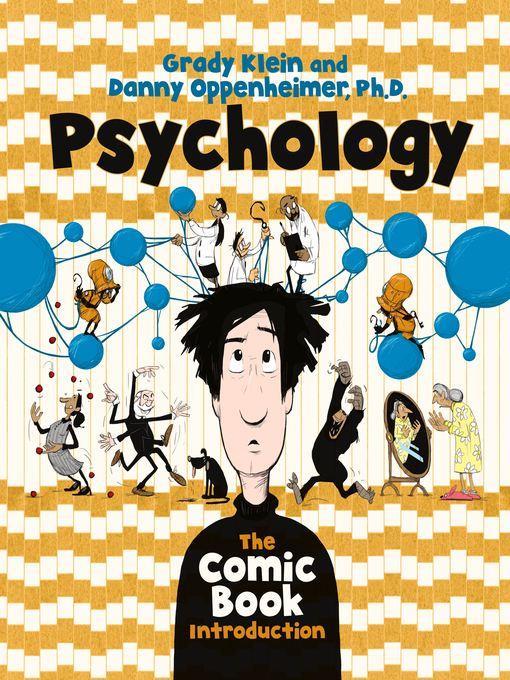
Psychology
The Comic Book Introduction
کتاب های مرتبط
- اطلاعات
- نقد و بررسی
- دیدگاه کاربران
نقد و بررسی

October 1, 2017
A lighthearted survey of how modern science researches and resolves some of the complexities of human psychology.Psychology is fun! Or so Klein (The Cartoon Introduction to Statistics, 2013, etc.) and Oppenheimer (Marketing and Psychology/UCLA; co-author: Democracy Despite Itself: Why a System that Shouldn't Work at All Works So Well, 2012) do their best to make it, providing a breezy overview of how we know what we know and what we still need to learn about the intricacies of the human mind. This isn't psychiatry; there is no mention of Freud or Jung or talk therapy and the individual. There isn't even any mention of pharmaceuticals--antidepressants and the like--that have revolutionized the field. Instead, the authors examine the reasons why we (as a group who can be tested and measured) behave and believe the way we do. It's a line that leads from Pavlov to B.F. Skinner through cognitive behavioral therapy, with a nod toward mindfulness to alleviate stress. Both the text and the illustrations turn topics that are potentially complicated and boring into humanized, humorous lessons. "Our minds are constantly working to create order from chaos," write the authors. They show how we choose from among the overload of available data, how we process information (often incorrectly, according to bias), how we remember and forget, how our emotions affect our reason, and how we balance it all to maintain relatively well-adjusted lives--or not. Very little of the text concerns those who are suffering from psychological disturbance, the ones most likely to seek treatment from a psychologist. As the authors write, "the difference between abnormal psychology and standard psychology is mostly a matter of degree." Intro to psych students will find this a helpful primer, but it is also written to engage and entertain general readers.A quick illumination of a complex field.
COPYRIGHT(2017) Kirkus Reviews, ALL RIGHTS RESERVED.

November 27, 2017
This peppy overview of psychological science follows the now-familiar educational comics format of snappy explanatory text interspersed with cartoon commentary. A colorful cast of unnamed characters—two lab-coated scientists, a bickering couple, some cavepeople, a gorilla—acts out the concepts in the text, adding gags, observations, and explanations. Sometimes the visuals clarify the material: linked memories, for example, are easy to understand as a chain of beads hooked together by busy cartoon workers. Other times, the illustrations simply provide humorous commentary. Oppenheimer, a Carnegie Mellon professor, wisely sticks to examples from contemporary research rather than getting too mired in history or minutiae, though his material sometimes tends a little too much toward pop-psych fluff. Still, he and artist Klein, a veteran of cartoon science guides as well as the creator of the beautiful Lost Colony graphic novels, cover an impressive swath of territory, including the mechanics of thought, the development of language, and the way society forces all our uniquely complicated minds to work together. The book confidently fulfills the purpose stated in its title.

November 15, 2017
Klein continues a string of books in his specialty, educational comics, with another primer, collaborating this time with psychologist Oppenheimer. The latter's specialty in marketing shows in the examples drawn from spending behavior, and that aligns the book with Klein's The Cartoon Introduction to Economics (2010). Emphasizing that the object of psychology is to explain how organismsespecially human beingsunderstand what they experience, Klein and Oppenheimer present psychological knowledge in three parts concerned with making sense of, respectively, the world, ourselves, and each other. The first covers perception, learning, memory, and thinking; the second, metacognition, emotion, motivation, and stress; the third, language, personality, social influence, and stereotyping. While the main text economically presents theories and concepts, remarks in the cartoons simultaneously exemplify and comment via joking rejoinders. Klein's stretched-out, rubbery figures, includingsince the subject is psychology, after allrats and dogs, genuinely keep the instruction jolly, and his borderless panels greatly help in keeping it moving. Beginning students of psychology and nonstudents looking for a painless refresher probably won't find a better book for their purposes.(Reprinted with permission of Booklist, copyright 2017, American Library Association.)

























دیدگاه کاربران